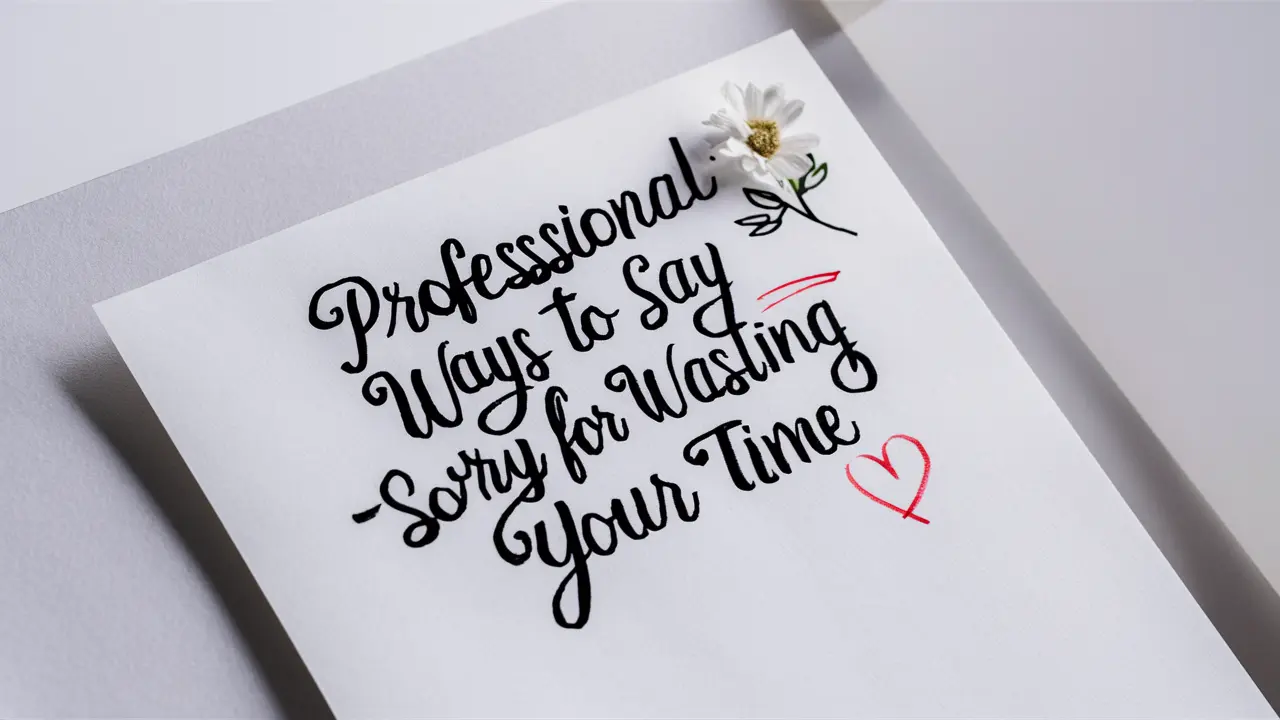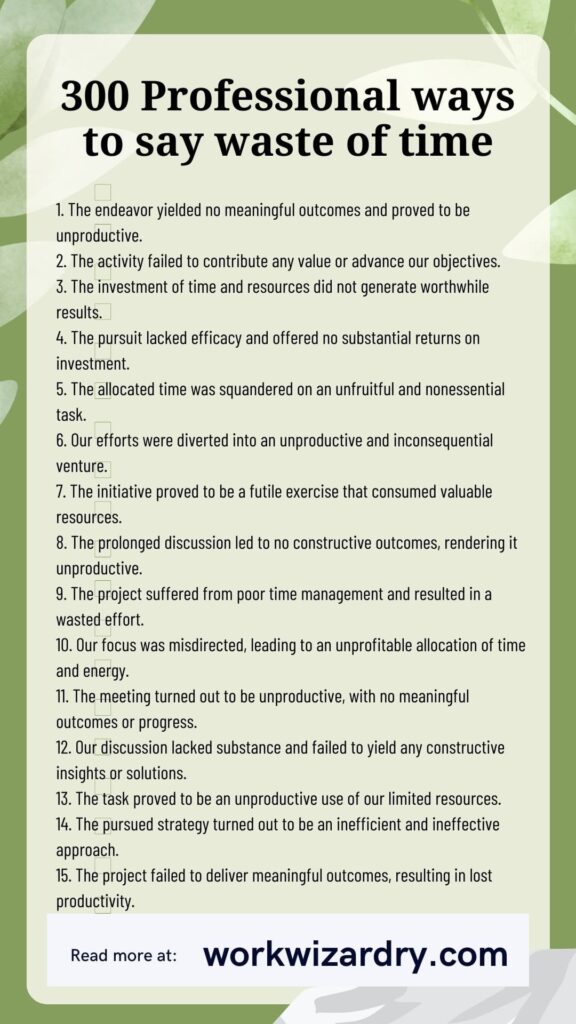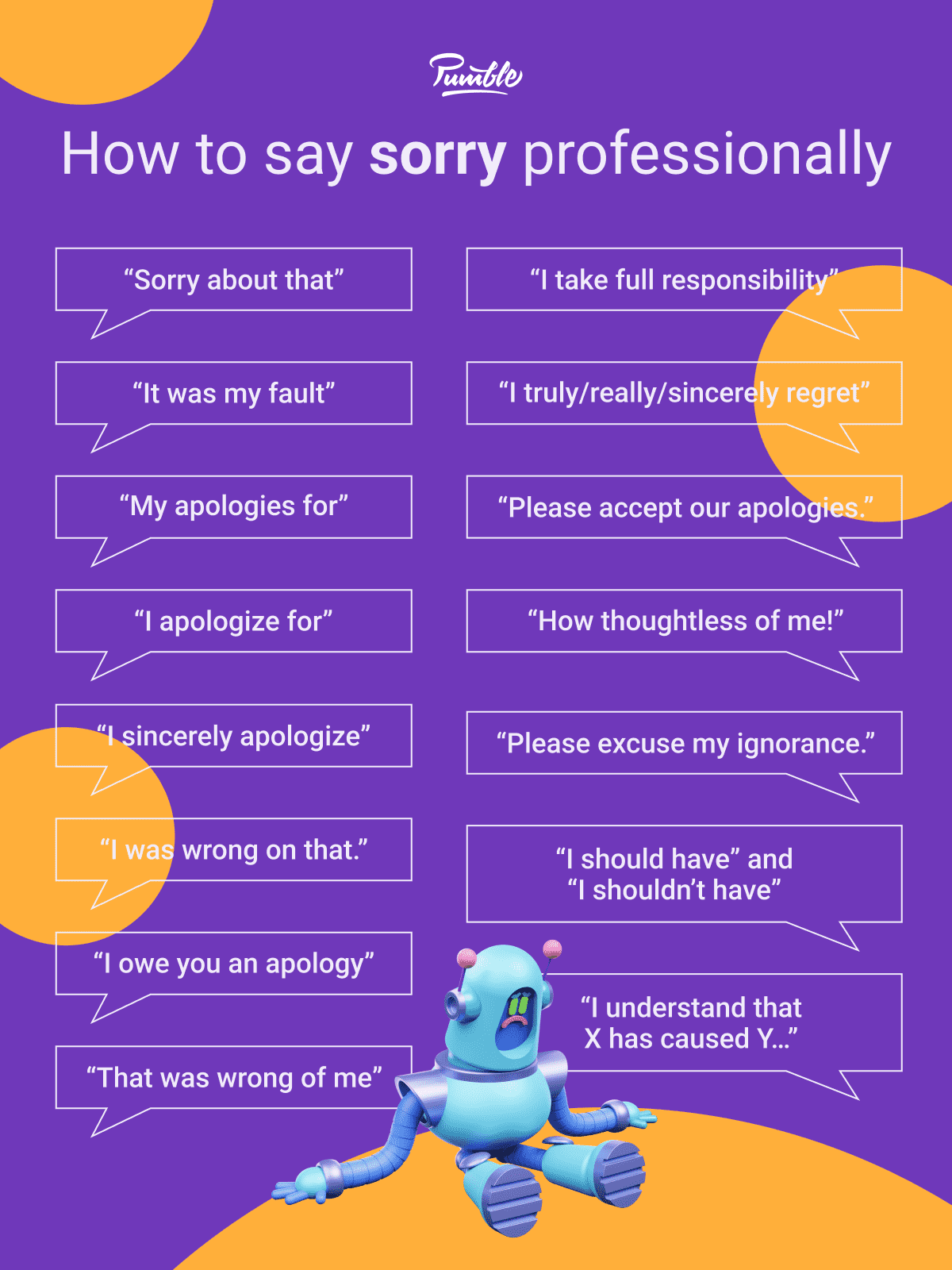Professional Way To Say Sorry For Wasting Your Time

Time is money, and apologizing for wasting someone's time requires a delicate balance of sincerity and professionalism. Learn how to craft the perfect apology and reclaim lost ground.
The ability to apologize effectively is crucial in today's fast-paced business world. A well-structured apology demonstrates respect and minimizes further damage, allowing you to rebuild trust.
The Core Elements of a Professional Apology
An effective apology acknowledges the time wasted and expresses sincere regret.
It clearly explains what happened and avoids making excuses. It also offers a solution or course of action to remedy the situation.
Ensure the apology is timely and delivered promptly after the incident.
Phrases to Avoid and Embrace
Avoid phrases like "I'm sorry if…" which sound insincere and shift blame.
Instead, use direct language such as "I sincerely apologize for…" to demonstrate genuine remorse. Use "I understand that my actions caused a disruption," showcasing that you take accountability.
Emphasize solutions and proactive steps to rectify the situation. For example: "I've taken steps to prevent this from happening again."
Crafting Your Apology: Examples and Templates
Here are a few templates you can adapt to different situations:
Scenario 1: Missed Meeting or Deadline
Subject: Apology for Missed Deadline
Dear [Name],
I am writing to sincerely apologize for missing the deadline on [Project/Task]. I understand this caused inconvenience and disruption, and I take full responsibility. The delay was due to [brief explanation]. I have already [implemented solution] to ensure that the project is back on track. I value your time and trust and am committed to delivering the project by [revised deadline].
Sincerely,
[Your Name]
Scenario 2: Unnecessary Meeting or Call
Subject: Apology for Wasting Your Time
Dear [Name],
I am writing to sincerely apologize for the unnecessary meeting [or call] on [Date]. I realize that the information presented could have been conveyed more efficiently through [alternative method]. I regret wasting your valuable time and appreciate your understanding. Moving forward, I will [changes in approach] to optimize communication.
Sincerely,
[Your Name]
Scenario 3: Miscommunication Leading to Inefficiency
Subject: Apology for Miscommunication
Dear [Name],
Please accept my sincere apology for the miscommunication regarding [Project/Task]. I understand that this has led to some inefficiencies, and I take full responsibility for the confusion. To rectify this, I have [steps taken to clarify]. I am committed to ensuring clearer communication moving forward. Thank you for your patience.
Sincerely,
[Your Name]
The Importance of Acknowledging the Impact
Simply saying "I'm sorry" isn't enough. It is important to demonstrate empathy and acknowledge the specific impact of your actions.
For instance: "I understand that my mistake caused a setback to your schedule" or "I realize that my lack of preparation resulted in frustration."
This shows that you are aware of the consequences and are genuinely concerned about the other person's experience.
Taking Action: Preventing Future Occurrences
A genuine apology includes a commitment to prevent similar issues from arising again. Show that you are doing what it takes to prevent the same type of errors from repeating.
For example, you might invest in new technology, improve team communication processes, or undergo additional training. Be open with your team about how you're learning from this experience.
This proactive approach demonstrates a commitment to continuous improvement and strengthens trust.
Key Takeaways for Delivering an Effective Apology
Be sincere and demonstrate genuine remorse. Acknowledge the specific impact of your actions.
Avoid making excuses or shifting blame. Take full responsibility for your mistakes and make it clear that you value their time.
Offer a tangible solution or course of action and commit to preventing future occurrences.


















